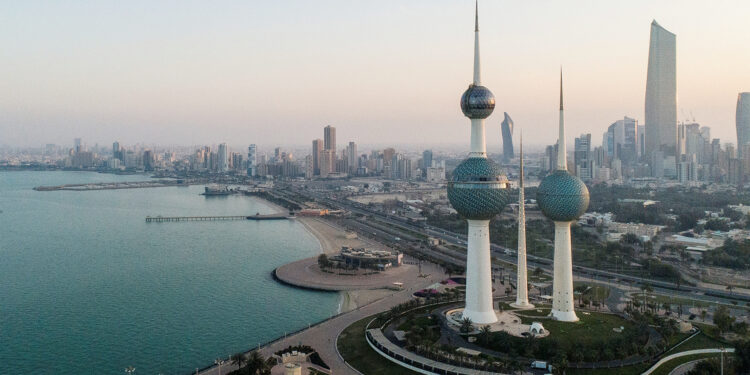1/14/2025–|Last updated: 1/14/202505:10 PM (Mecca time)
The United Nations Economic and Social Commission for Western Asia (ESCWA) said that achieving financial sustainability and improving the efficiency of social spending would achieve financial savings estimated at more than a quarter of public spending in 2023-2024.
ESCWA added, in a report entitled “Social Spending, Spending Efficiency and Financial Sustainability: Strategies to Rebalance Kuwait’s Budget,” that public spending in Kuwait constitutes the equivalent of 50% of its gross domestic product, which is a much higher rate than the global average of 37%.
She pointed out that, however, the management of this spending lacks efficiency, as Kuwait scores 0.54 on the efficiency index compared to a global average of 0.74.
The report indicates that improving efficiency to reach this average may achieve financial savings estimated at 6.8 billion Kuwaiti dinars ($22 billion), or about 27% of the state’s public spending for the year 2023-2024.
Education and health
Regarding social spending, which consumes 44% of the total public budget in Kuwait, the report recorded a decline in the per capita share of this spending by 12% since 2018-2019.
It also indicates that the education sector, which accounts for 12% of the general budget, is still lagging behind international standards, despite the large spending that has been allocated over the years.
In the health sector, the high level of public spending did not contribute to addressing health challenges, as about a quarter of the population in Kuwait suffers from diabetes, and this indicates an urgent need to improve the effectiveness of these expenditures.
Government transfers
The report highlights problems in the fair distribution of government transfers to individuals, with the wealthiest households benefiting 22% of total transfers due to the absence of effective targeting mechanisms.
The report recommends rationalizing transfers towards middle- and low-income families, as this will in turn provide significant financial resources to be redirected towards the development sectors most in need.
Roadmap
The report called for implementing comprehensive financial reforms to strengthen the Kuwaiti economy, foremost of which is diversifying the economy by strengthening non-oil sectors and supporting the private sector. It also stressed the need to improve mechanisms for collecting non-oil revenues and adopt performance-based budgets and digital platforms to improve transparency and enhance efficiency.
The report emphasized the importance of developing public services, emphasizing investment in preventive health care and modernizing medical infrastructure. It also recommended improving education through teacher training and curriculum development, as well as expanding research initiatives to support long-term economic and social goals.
In this context, the report’s author, Niranjan Sarangi, said, “Kuwait needs immediate action. Implementing targeted financial reforms is not an option but a necessity to protect the economy and ensure the well-being of citizens.”
The report indicated that aligning Kuwait’s financial strategy with the United Nations Sustainable Development Goals is crucial to achieving long-term economic stability, and implementing these reforms may improve Kuwait’s ranking in global indicators, such as the Human Development Index and the Sustainable Development Goals Index, and put it in a better position to achieve Its economic and development aspirations.



